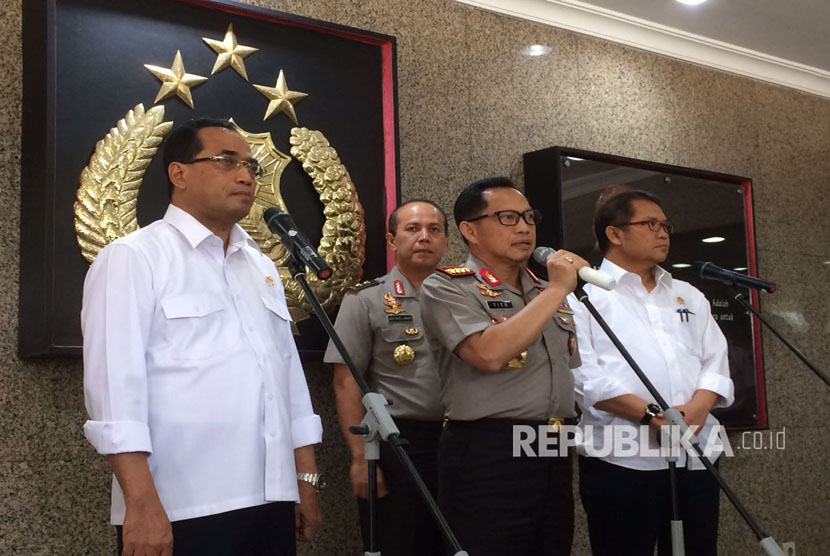REPUBLIKA.CO.ID, JAKARTA – Indonesian Police, Ministry of Transportation, and Ministry of Communication and Informatics had conducted teleconference with a number of regional head to socialize the revision of Ministry of Transportation Regulation No. 32 year 2016. “There are some points revised and we socializes it to some related regions,” said the Indonesian Police Chief Tito Karnavian in his office on Tuesday (March 21).
Tito said the recent dynamics between online and conventional transportation was not good, although the government had made a regulation in 2016. During the implementation process, there were dynamics between the online and conventional transportation. He gave the examples of some violence between the two in Tangerang and Bogor.
The point revisions responded the problems. Basically it was a regulation to solve the problems between online and conventional transportation. The points were socialized to vulnerable regions. The regional heads were hoped to make a quick and simultaneous responds to appeals all the conflicted parties.
He hoped the revised regulation would avoid any victims. Police would take firm actions when there were violations against it. "The teleconference were joined by two governor, namely the West Java Governor Mr. Aher and the East Java Major Mrs. Risma,” said Tito.
The Minister of Transportation Regulation No. 32 in 2017 on Online Transportation would be effective on April 1st (2017). There were five points mentioned the online transportation management.
Transportation Minister Budi Karya Sumadi said there would no sanction for the operators violating the five points of regulation. There would three months of grace period for adaptation.
Budi gave the examples of the points. Among others were the feasibility test for vehicles and the vehicles’ completeness of adjustment. The operators of online transportation had three months to meet the requirement mentioned in the minister regulation.
"The implementation is on April 1st, but the details were on the grace period. We also talked about it to the regional government and regional police not to directly take firm action. We would socialize it first,” said Budi in his office on Tuesday (March 21).
The points also included the adaptation of tariffs and quotas. The central government let the regional government to decide the tariff.
Budi explained that the regional government was given two months to decide the tariff since the minister regulation was applied. The adaptation process should consider the recommendation from taxi and public transportation association on each regional. "We would see the cost, the fuel cost, and the profit margin. We would calculated it and distribute it,” said Budi.


